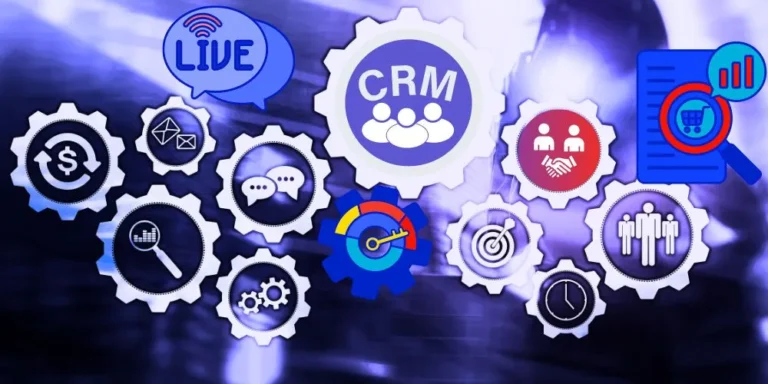In today’s fast-paced and highly competitive business landscape, the value of customers cannot be overstated. They are not just buyers; they are the foundation upon which successful organizations are built. Recognizing customers’ critical role, businesses are increasingly turning to Customer Relationship Management (CRM) strategies to foster deep, lasting connections. A CRM customer lies at the core of this philosophy, with businesses focusing on understanding, addressing, and exceeding their needs. This comprehensive article explores the profound significance of CRM customers, delves into the pivotal role of CRM in cultivating customer-centricity, and examines the transformative impact of this approach on companies aiming for sustained customer loyalty and growth.
The Significance of CRM Customers
A CRM customer represents more than a transactional entity; they are partners in a collaborative relationship. Several vital points underscore the immense significance of directing attention toward CRM customers.
Customer-Centric Culture
A CRM customer-oriented approach ingrains customer-centricity into an organization’s culture. This approach ensures that every business decision and action aligns with fulfilling customer expectations and preferences. In a customer-centric culture, employees at all levels understand the importance of delivering exceptional experiences to CRM customers. This mindset shift drives innovation and agility, proactively allowing the organization to adapt to evolving customer needs. Companies prioritizing a customer-centric culture often engage in regular training programs, workshops, and knowledge-sharing sessions to empower employees with the skills and insights necessary to cater to CRM customers effectively.
Loyalty and Retention
Prioritizing CRM customers enhances fidelity, increases customer retention rates, and reduces customer churn. A satisfied CRM customer is likelier to remain loyal in the face of competition. Loyalty programs and personalized retention strategies are pivotal in nurturing long-term relationships with CRM customers. These initiatives can include exclusive offers, tiered membership benefits, and tailored rewards based on the customer’s purchase history and preferences. Businesses can build a loyal customer base that becomes an invaluable asset over time by demonstrating a commitment to their CRM customers’ well-being and satisfaction.
Repeat Business and Referrals
A content CRM customer is inclined to engage in repeat transactions and advocate for the brand. It translates into organic growth as satisfied customers enthusiastically refer others to the business. To harness the power of referrals, companies can establish programs incentivizing them to introduce friends, family, and colleagues to the brand. Additionally, maintaining open communication channels with CRM customers allows businesses to gather testimonials and success stories, which can be strategically showcased in marketing materials to build credibility and attract new customers.
Customer Insights
Focusing on CRM customers provides access to valuable insights. These insights inform critical areas such as product development, marketing strategies, and business improvements, ensuring alignment with customer preferences. Companies can leverage advanced analytics tools integrated with their CRM systems to unlock the full potential of customer insights. Businesses can identify emerging trends and proactively adjust their offerings to cater to changing preferences by analyzing purchase patterns, browsing behaviors, and demographic information. This data-driven approach minimizes the risk of investing resources in products or services that may not resonate with the target audience.
The Role of CRM in Fostering Customer-Centricity
In today’s fast-paced business environment, it is critical to prioritize customer-centricity to succeed. One essential tool for achieving this is Customer Relationship Management (CRM).
360-Degree Customer View
CRM systems serve as a repository for customer data from various touchpoints. This consolidated data provides a 360-degree view of each CRM customer’s interactions, preferences, and behavior with the company. Integrating multiple data sources, for example, social media interactions, purchase history, and customer service inquiries, into a centralized CRM platform enables organizations to create comprehensive customer profiles. These profiles, often enriched with demographic data and psychographic insights, allow businesses to tailor their interactions and communications to resonate with the unique preferences of each.
Personalized Customer Engagement
Businesses can craft personalized interactions tailored to individual CRM customers by leveraging CRM data. This customized engagement enhances the overall customer experience and strengthens the customer-business relationship. Personalization goes beyond simply addressing CRM customers by their names. It involves understanding their preferences, anticipating their needs, and delivering relevant content and recommendations immediately. Personalized email campaigns, product recommendations based on purchase history, and dynamic website experiences that adapt to the user’s behavior are all examples of how CRM-driven personalization can create a more intimate and engaging relationship with CRM customers.
Improved Customer Service
CRM streamlines customer service processes by equipping support teams with comprehensive information. It empowers agents to provide timely, relevant, and efficient support, ultimately enhancing customer satisfaction. Integrated CRM platforms often feature case management and ticketing systems, enabling support teams to track and resolve customer inquiries more efficiently. These systems ensure that CRM customers receive consistent and personalized assistance regardless of the channel they choose to communicate through. Furthermore, AI-powered chatbots and virtual assistants can leverage CRM data to answer common queries immediately, freeing human agents to focus on more complex issues.
Automated Workflows
CRM systems automate routine tasks and workflows, allowing businesses to allocate more time and resources toward building genuine connections with CRM customers. This automation enhances operational efficiency. Automation is crucial in optimizing various customer touchpoints throughout the journey. For instance, automated workflows can trigger personalized thank-you emails, order confirmations, and delivery notifications when a CRM customer purchases. Additionally, businesses can implement automated follow-up sequences that nurture CRM leads through the sales funnel, delivering relevant content and offers based on the customer’s interactions and preferences.
Sales Pipeline Management
CRM facilitates effective sales pipeline management, enabling sales teams to track leads, opportunities, and customer interactions in real-time. This functionality empowers teams to make informed decisions at every stage of the sales process. Modern CRM systems offer robust sales pipeline management features that enable sales representatives to visualize the entire customer journey, from initial contact to final conversion. By tracking CRM customer interactions and engagement, sales teams can identify potential upsell and cross-sell opportunities, tailor their pitches to resonate with the customer’s needs and prioritize leads based on their conversion likelihood. Real-time analytics and dashboards provide valuable insights into the effectiveness of different sales strategies, allowing for continuous optimization and refinement.
Transformative Impact of CRM Customers
The transformative impact of CRM on customers cannot be denied. By gaining valuable insights into their needs and behaviors, businesses can tailor their products and services to meet those needs better, resulting in increased customer satisfaction and loyalty.
Enhanced Customer Satisfaction
Focusing on CRM customers leads to personalized experiences and efficient service. It, in turn, heightens customer satisfaction levels, which is crucial for fostering enduring customer relationships. Customer satisfaction is the bedrock upon which lasting customer relationships are built. Businesses create a positive feedback loop by consistently delivering exceptional experiences that align with CRM customer preferences and expectations. Satisfied CRM customers are likelier to provide positive reviews, refer friends and family, and remain loyal to the brand. Organizations can measure and enhance customer satisfaction by implementing post-interaction surveys, Net Promoter Score (NPS) assessments, and sentiment analysis tools that gauge sentiment across various touchpoints.
Increased Sales and Revenue
By tailoring offerings to CRM customers’ preferences, businesses boost sales conversions and experience revenue growth. Satisfied CRM customers are more likely to engage in repeat purchases and explore additional offerings. Effective cross-selling and upselling strategies capitalize on the deep understanding of CRM customer preferences that CRM systems provide. These strategies involve recommending complementary products or premium versions of existing purchases, enticing to explore new facets of the brand. Additionally, segmentation and targeting capabilities offered by CRM platforms enable businesses to craft targeted promotional campaigns that resonate with specific CRM customer segments, driving higher conversion rates and maximizing revenue potential.
Customer Retention and Loyalty
Businesses prioritizing CRM customers experience higher customer retention and loyalty. A satisfied and engaged base becomes a stable foundation for long-term growth. Loyalty-building initiatives, such as personalized loyalty rewards, exclusive member benefits, and VIP experiences, are pivotal in retaining. By continually delivering value beyond the initial purchase, businesses reinforce the perception that they are valued partners in a mutually beneficial relationship. Furthermore, regular communication and engagement through personalized newsletters, product updates, and interactive content foster a sense of belonging and emotional attachment, solidifying the bond between the CRM customer and the brand.
Improved Business Agility
Embracing CRM allows organizations to swiftly respond to changing customer needs and market trends. This agility positions businesses to adapt quickly, ensuring they remain relevant and competitive. Analyzing real-time CRM customer data empowers businesses to detect emerging trends and shifts in customer behavior promptly. For instance, companies can quickly allocate resources to meet the increased demand if a particular product or service is gaining traction among CRM customers. Conversely, if CRM customer preferences shift, organizations can pivot their strategies to align with evolving expectations. This agility enhances customer satisfaction by addressing current needs and positions the business for sustainable growth by staying ahead of the curve.
Data-Driven Decision Making
Insights from CRM data empower businesses to make informed, data-driven decisions. This analytical approach aids in identifying trends, predicting customer behaviors, and crafting strategies that align with CRM customer needs. Data-driven decision-making relies on integrating and analyzing various data points collected from CRM interactions. Businesses can uncover hidden patterns and correlations within behavior by leveraging data visualization tools and advanced analytics algorithms. These insights inform strategic initiatives such as new product development, pricing optimization, and expansion into new markets. Furthermore, A/B testing and experimentation based on CRM insights enable organizations to refine their approaches continuously, ensuring that decisions are rooted in evidence rather than assumptions.
Conclusion
A CRM customer-centered approach is the cornerstone of a thriving, customer-centric organization. By harnessing the power of CRM, businesses can holistically understand each, anticipate their preferences, and deliver bespoke experiences that breed loyalty and long-lasting connections. The significance of CRM customers transcends transactional interactions; it empowers companies to optimize touchpoints, elevate customer satisfaction, and drive sustainable growth.
As competition intensifies and customer expectations evolve, organizations prioritizing CRM customers in their strategic initiatives will emerge as leaders in the dynamic business landscape. Building enduring relationships based on trust, satisfaction, and genuine care allows businesses to flourish despite challenges. By nurturing, enterprises pave the way for a prosperous future rooted in resilient partnerships that withstand the test of time.
In an era where data is abundant, and technology is advancing rapidly, the role of CRM in shaping customer experiences and driving organizational success cannot be overstated. As businesses continue to adapt to changing landscapes, those that leverage CRM to its fullest potential will undoubtedly lead the way in building lasting, customer-centric relationships that define success in the modern age.







